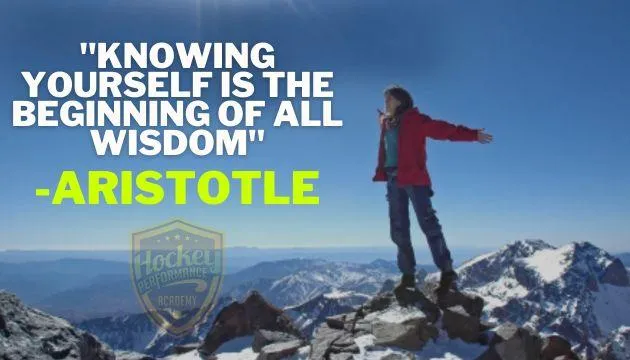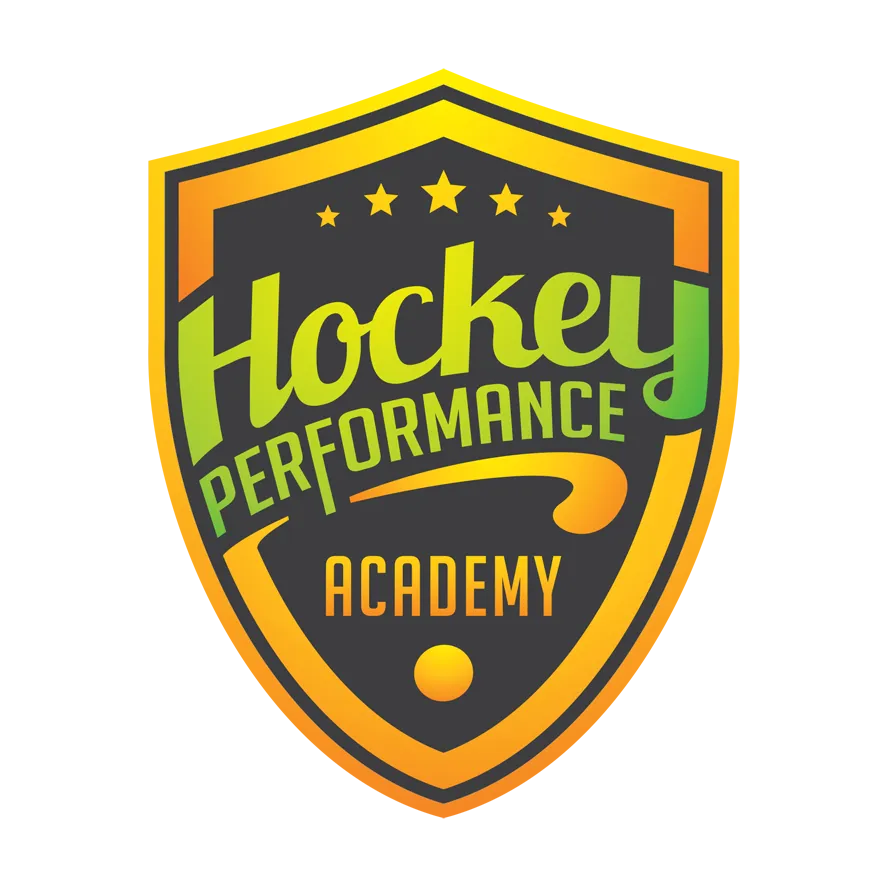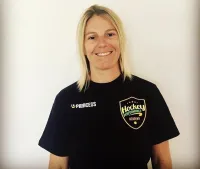
Know Yourself to Grow Yourself
Becoming a master in any art-form cannot be achieved through reliance upon natural ability alone – it requires time, determination and importantly, mental strength. As you develop as a hockey player, finding yourself in competition with an increasing number of other talented athletes, success becomes more and more a case of ‘mind over matter’. Whilst your mind can indeed be your friend, leave it to fend without the necessary nourishment, it can just as easily become your enemy. The intensity of hockey, combined with the unpredictability of competitive team sport, makes learning to control and harness the power of your mind all the more important. Every player, no matter who they may be, faces a rough and unpredictable ride on hockey’s emotional roller-coaster; experiencing highs, lows, victory, defeat, injuries and triumphs. What defines you as an athlete however, is how you respond to these events. Will you be knocked from the carriage, fall and never know where the track could have taken you; or will you bounce-back from the rough, ride with the jolts and enjoy the reward of fulfilment?
Sports psychologists have continually proved the existence of a link between differing psychological characteristics and contrasting behavioural responses. In essence, the mind is the defining mediator between a situation and the subsequent outcome.
As I have myself grown as a hockey player, I have been able to see first-hand the extent to which our psychology can effect performance and progression. I have seen many athletes crumble in the face of pressure, witnessed top-players lose their motivation and seen even the most gifted athletes be unable to return to their previous form after injury. Ultimately, those who have found their route to the top have not simply been those blessed with natural ability, but those who have simultaneously nurtured an optimal mind-set that compliments success. What too many of these individuals who did not reach their potential were not told as youngsters, was that the development of a positive hockey-psyche was of equal importance to the development of their physical skills, and most importantly, that they could do something about it.
Before you can begin to gain control over your mind, you must first develop a strong self-awareness, understanding the ways in which your mind works. As I like to say… ‘Know yourself to grow yourself’. Whilst this may sound relatively simplistic, evaluating your psychological processes takes time, and it continues to be surprising how many athletes have never-before reflected upon how they respond to certain situations, why they are responding this way, and how to harness this knowledge to create the most favourable outcome. The earlier this awareness is developed, the better.
The process of psychological self-assessment will help in answering a wide number of questions, for example:
How do you respond to negative feedback/positive feedback?
How do you cope with pressure?
What makes you feel the most/least confident?
When do you feel the most/least motivated?
Why know the answers?
Knowing the answers to questions such as these has beneficial implications for both physical and psychological athlete development. Indeed, identifying an area of psychological weakness during self-assessment can pinpoint the direction of appropriate mental-skills training; for example, discovering an inability to achieve motivation in particular circumstances can highlight the need to introduce self-talk strategies. Similarly, knowing that you respond poorly to failure can demonstrate the need to implement more achievable goals during physical training, thereby helping to avoid detrimental feelings of discouragement.
Ultimately, exercising mental control and harnessing the power of your mind can facilitate the development of important feelings of autonomy, competence and motivation, priming you for whatever hockey may throw your way.
WANT TO REACH THE NEXT LEVEL IN YOUR HOCKEY?
I've put together a FREE 20 min training video sharing the 4 Steps To Get Noticed In Hockey, including how to avoid the same mistakes that I made (and that many others make too) when striving to reach a higher level in hockey.

Get the 4 Steps To Get Noticed FREE Training HERE
For more hockey tips and training DOWNLOAD OUR FREE mobile app using the buttons below



Know Yourself to Grow Yourself
Becoming a master in any art-form cannot be achieved through reliance upon natural ability alone – it requires time, determination and importantly, mental strength. As you develop as a hockey player, finding yourself in competition with an increasing number of other talented athletes, success becomes more and more a case of ‘mind over matter’. Whilst your mind can indeed be your friend, leave it to fend without the necessary nourishment, it can just as easily become your enemy. The intensity of hockey, combined with the unpredictability of competitive team sport, makes learning to control and harness the power of your mind all the more important. Every player, no matter who they may be, faces a rough and unpredictable ride on hockey’s emotional roller-coaster; experiencing highs, lows, victory, defeat, injuries and triumphs. What defines you as an athlete however, is how you respond to these events. Will you be knocked from the carriage, fall and never know where the track could have taken you; or will you bounce-back from the rough, ride with the jolts and enjoy the reward of fulfilment?
Sports psychologists have continually proved the existence of a link between differing psychological characteristics and contrasting behavioural responses. In essence, the mind is the defining mediator between a situation and the subsequent outcome.
As I have myself grown as a hockey player, I have been able to see first-hand the extent to which our psychology can effect performance and progression. I have seen many athletes crumble in the face of pressure, witnessed top-players lose their motivation and seen even the most gifted athletes be unable to return to their previous form after injury. Ultimately, those who have found their route to the top have not simply been those blessed with natural ability, but those who have simultaneously nurtured an optimal mind-set that compliments success. What too many of these individuals who did not reach their potential were not told as youngsters, was that the development of a positive hockey-psyche was of equal importance to the development of their physical skills, and most importantly, that they could do something about it.
Before you can begin to gain control over your mind, you must first develop a strong self-awareness, understanding the ways in which your mind works. As I like to say… ‘Know yourself to grow yourself’. Whilst this may sound relatively simplistic, evaluating your psychological processes takes time, and it continues to be surprising how many athletes have never-before reflected upon how they respond to certain situations, why they are responding this way, and how to harness this knowledge to create the most favourable outcome. The earlier this awareness is developed, the better.
The process of psychological self-assessment will help in answering a wide number of questions, for example:
How do you respond to negative feedback/positive feedback?
How do you cope with pressure?
What makes you feel the most/least confident?
When do you feel the most/least motivated?
Why know the answers?
Knowing the answers to questions such as these has beneficial implications for both physical and psychological athlete development. Indeed, identifying an area of psychological weakness during self-assessment can pinpoint the direction of appropriate mental-skills training; for example, discovering an inability to achieve motivation in particular circumstances can highlight the need to introduce self-talk strategies. Similarly, knowing that you respond poorly to failure can demonstrate the need to implement more achievable goals during physical training, thereby helping to avoid detrimental feelings of discouragement.
Ultimately, exercising mental control and harnessing the power of your mind can facilitate the development of important feelings of autonomy, competence and motivation, priming you for whatever hockey may throw your way.
WANT TO REACH THE NEXT LEVEL IN YOUR HOCKEY?
I've put together a FREE 20 min training video sharing the 4 Steps To Get Noticed In Hockey, including how to avoid the same mistakes that I made (and that many others make too) when striving to reach a higher level in hockey.

Get the 4 Steps To Get Noticed FREE Training HERE
For more hockey tips and training DOWNLOAD OUR FREE mobile app using the buttons below



